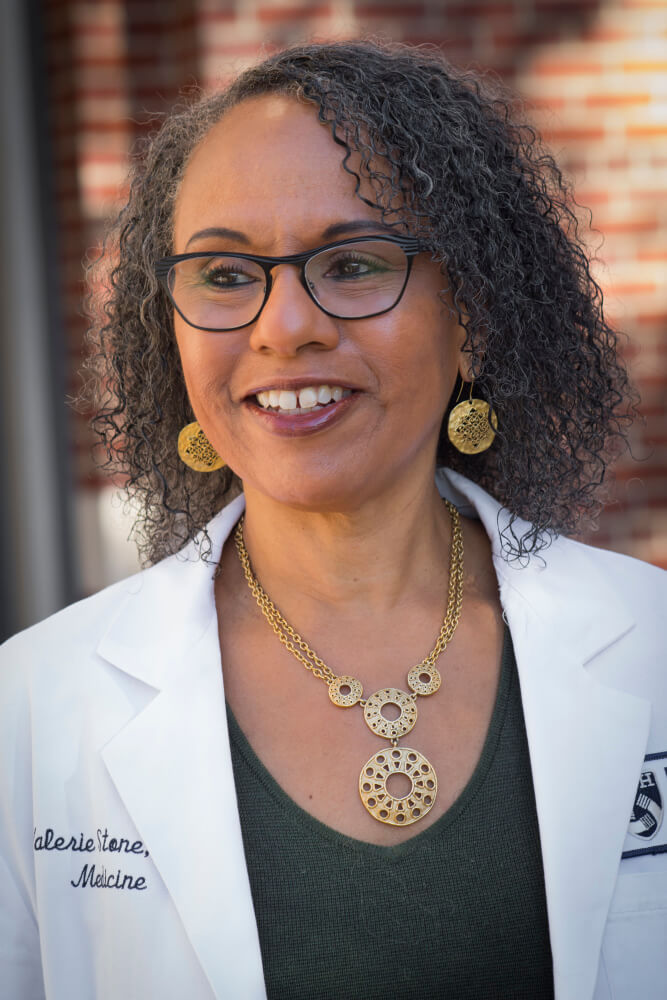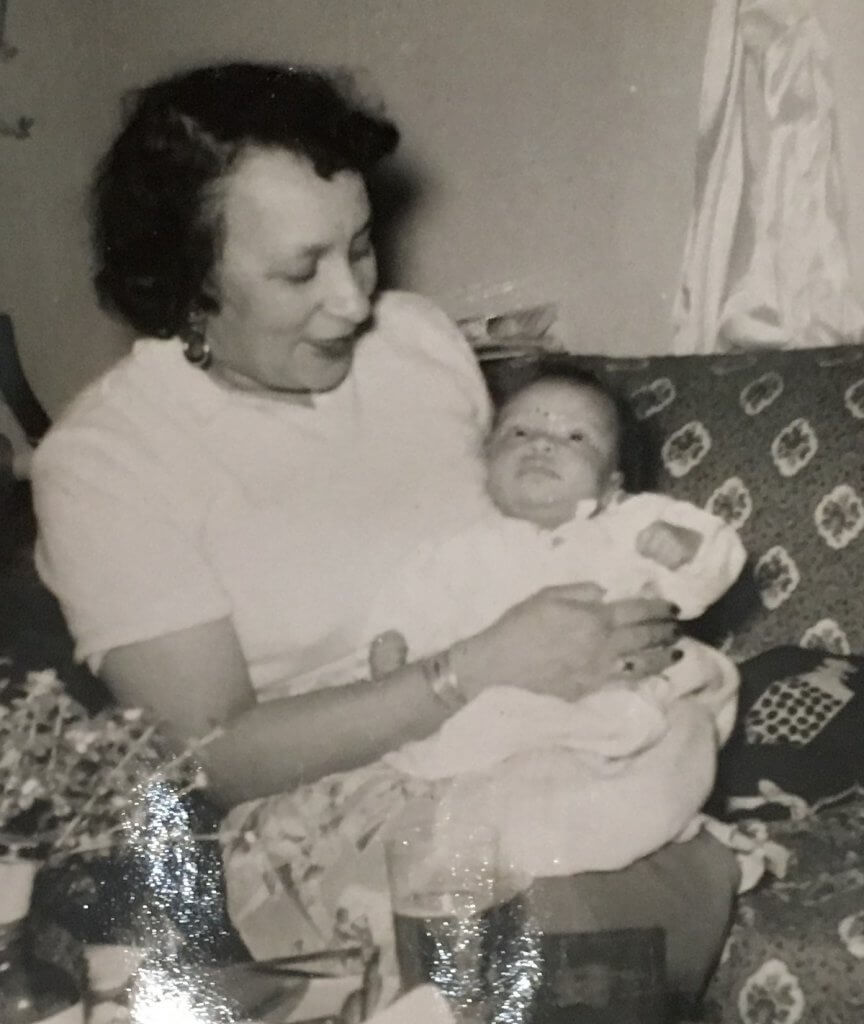Valerie Stone, MD, MPH, was considering becoming an oncologist in the mid-1980s when something happened to shift her focus. People, including some very close to her, began developing a mysterious new disease.
What they had was eventually identified as acquired immune deficiency syndrome, or AIDS. And as a member of two groups disproportionately impacted — Black people and the LGBTQ+ community — Stone saw up-close the indignities faced by those living with AIDS and the HIV virus that causes it.
The title of her recent presentation at Dana-Farber, “My 40-Year HIV/AIDS Journey and the Lessons Learned Along the Way,” illustrates how Stone’s professional aspirations changed. Throughout her career, the clinician and Harvard Medical School professor has dedicated herself to addressing disparities in HIV/AIDS care and education experienced by people of color.

“HIV can affect anyone, but for the entire history of the AIDS epidemic, it has not affected everyone equally,” said Stone, vice chair for Diversity, Equity, and Inclusion and director of Health Equity Initiatives in the Department of Medicine at Brigham and Women’s Hospital (BWH). “There has been a lot of attention paid to the different ways that people acquire HIV, and across all of them, Black, Hispanic, and Latinx people have been disproportionately affected.”
Stone’s talk, held over Zoom, coincided with Dana-Farber’s observance of Black HIV/AIDS Awareness Day, which occurs annually on February 7 to raise understanding about prevention, care, and treatment in communities of color. Two of Dana-Farber’s employee resource groups, Mosaic and LGBTQ+ & Friends, sponsored her Feb. 25 presentation.
Struggling with stigmas
Long before learning about AIDS, Stone experienced the toll of health disparities first-hand. When she was 13, her grandmother began vomiting frequently and feeling poorly after meals. She also developed jaundice, but doctors failed to give her appropriate treatment.
“The doctors told her she was sick because she drank too much, and women shouldn’t drink,” recalled Stone. “They said if she quit drinking she’d feel better, but even after she did quit, and remained sick, they just said the same thing. By the time she finally got to the hospital and had surgery, she had widely metastatic cancer. She died 10 days later.”
Even at a young age, Stone sensed that her grandmother’s death was due largely to the fact doctors did not take her concerns seriously because she was Black, a woman, and enjoyed a lifestyle that included drinking. The loss inspired Stone to become a doctor — and an activist — devoted to fighting health inequities in diseases like cancer, heart disease, and diabetes.
Then, as a second-year medical student at Yale in 1981, she began reading in medical journals about a disease known as pneumocystis carinii pneumonia (PCP) that was impacting primarily young, otherwise healthy gay men and intravenous drug users. Stone’s cousin had a long-time heroin addiction, and died during this period of a “mysterious pneumonia.” A close medical school friend who contracted HIV, and then AIDS, died as well.
Unlike with COVID-19, Stone explained, the AIDS epidemic unfolded slowly. It wasn’t until 1984, during her sub-internship, that she treated her first AIDS patient. His medical charts said he had acquired AIDS through repeated injection drug use, but Stone eventually learned he was keeping his status as a gay man secret from his family by feigning addiction.
“He said the stigma of being gay in the Black community was so overwhelming that it caused him to hide this part of who he was,” said Stone. “For me as an LGBTQ Black person, this was pretty overwhelming and incredibly sad. The heartbreaking way AIDS affected Black people and LGBTQ people, and made the marginalized even more marginalized, really drew me in. It changed the course of my career.”

Two missions
Impassioned by these experiences, Stone switched her residency from OB/GYN to Medicine so she could treat AIDS patients regularly. After two fellowships — the first in Health Equity Research at BWH and the Harvard School of Public Health, the second in Infectious Diseases at Boston City Hospital and Boston University School of Medicine — sealed her commitment, she became an AIDS doctor.
During the decades to come, she has continued working toward eliminating the disparities in HIV/AIDS cases and deaths that remained constant even as emerging treatments dramatically improved overall survivorship. In 2001, observing the disease’s greater impact on female patients — who were often older, unmarried, and financially less secure than their male counterparts — Stone launched the Women’s AIDS Program at Massachusetts General Hospital with clinical colleague Sheila Davis, RNP, and others. She spoke nationally on the impact of HIV/AIDS on minority groups, and co-edited a textbook with Bisola Ojikutu, MD, MPH, HIV/AIDS in U.S. Communities of Color.
Now Stone is on a new mission: helping clinicians dealing with inequities faced by marginalized groups during the COVID-19 pandemic, as well as in cancer care and prevention, to learn from the past. When it comes to life-threatening illnesses, she believes, everybody deserves a chance -—however they can be reached.
“No one should be blamed for any disease that they acquire, no matter what their lifestyle,” she concluded. “This is something all of us as providers should always keep in mind.”
